266 products
- White Wine
- Chenin Blanc
- Sustainable
- Dry
- Medium Bodied
- 750ml
- 12.97% alc./vol
About the Winery
Pearce Family Wines

In the early 2000's Nicholas Pearce was exposed to the garagiste movement in Bordeaux and was particularly inspired by négociants like Jean Luc Thunevin (Saint Emilion), James Sichel (Margaux) and Nicolas Potel (Beaune) from Burgundy.
After returning home to Ontario and starting his own wine company, he has had a hand in making 10+ wines in two hemispheres, 3 countries and 5 different appellations since the 2013 vintage.
Pearce Predhomme

Pearce Predhomme is a collaboration of like-minded individuals from around the globe. Founded with a mission to build and import wines from our favourite appellations while offering an unequaled value/quality ratio for the sommeliers & wine buyers in Ontario. This is a project between Toronto Sommelier and entrepreneur Will Predhomme and Ontario wine importer Nicholas Pearce they have partnered with Radford Dale in South Africa and NorthWest Wine Co. in Oregon to create these special cuvées.
Press Reviews
Wine Align
92 points - David Lawrason
This is a firm, dry, mineral-driven chenin with good complexity and definition. It captures essential chenin pear/quince, green banana, some wet stone and subtle herbality. It is mid-weight, firm fairly taut and juicy, but has a sense of substance as well. A bit tart-edged. The length is excellent. Tasted Sept 2022
91 points - Sarah d'Amato
A négociant project by Toronto-based wine agent Nicholas Pearce and sommelier Will Predhomme with Radford Dale winery. Features flavours of honeysuckle, jasmine, lemon and lime with some toasty lees in the mix. A minimal interventionist style made using indigenous yeast and no notable oak spice. Punches above its price class in terms of complexity, character and depth. A great value despite a slight price increase. Tasted September 2022.
90 points - Michael Godel
Hard to imagine this Pearce-Predomme joint venture with Radford Dale in Stellenbosch is already into its eighth (or possibly ninth?) vintage and yet here it is in the high quality chenin blanc flesh and blood. Always the wild ferment, the mad scientist blending of parcels, tanks and barrels, the attention to detail that no wine at this price should be lent and yet winemaker Jacques de Klerk gives his all to this project. That said the price has finally crept up to meet its reality and yes, 2021 does well to deliver the goods to correspond. Nice little shake of tonic in this iteration with acids as sharp as ever and fruit more green apple snappy than cream-centred. Nothing soft here, only great intent and trenchant plausibility. Drink 2022-2025. Tasted September 2022.
Platters Guide
4.5 Stars - 91 points
- Red Wine
- Grenache, Mourvèdre / Monastrell, Samso / Carignan, Syrah
- Sustainable, Vegan-Friendly
- Dry
- Medium Bodied
- 750ml
- 14.5% alc./vol
About the Winery
Domaine Andre Aubert
At the very heart of the Rhône Valley, at the northerly tip of the Southern Rhône, lie the vineyards of Grignan-Les-Adhémar. The chances are you haven’t heard the name before, few people have, but the wines are worth seeking out. It’s not a new wine region – vines have been planted here since around 500BC but it is a new name (formerly known as Côteaux-du-Tricastin). Domaine André Aubert, has been formed over decades and today comprises of more than 280 hectares spread from north to south of the prestigious Southern Rhone Valley on the appellations Côtes du Rhône, Côtes du Rhône villages, Visan, and Grignan-les-Adhémar.
Press Reviews
Wine Align
90 points - David Lawrason
This is new appellation (formerly Coteaux de Triscatin) is the northernmost in the southern Rhone. It uses the typical southern Rhone varieties, but none can be more than 80% of the blend. This is a quite elegant, well structured, mid-weight red with some stony minerality, lifted pepper and savoury notes. Not as opulently fruity and rich as many peers, yet very tidy and balanced. The length is very good to excellent. Tasted March 2022
- Sparkling Wine
- Chardonnay
- Sustainable, Vegan-Friendly
- Dry
- Medium Bodied
- 750ml
- 12.00% alc./vol
About the Winery
Domaine Baud Père et Fils

The history of Domaine Baud dates back to 1742, and it wasn't until 1950 when René Baud, the 7th generation, rebuilt the vineyard which had suffered from the phylloxera crisis and two World Wars.
Starting with only 4 hectares, the vineyard progressively expanded to 20 hectares with the help of successive generations. Now, managed by siblings Clémentine and Bastien, the 9th generation, the estate continues to flourish and grow, with a strong commitment to sustainable viticulture and preserving the traditions and style that makes the wines of the Jura so unique and incredible.
The estate achieved the Terra Vitis certification in 2014 for its eco-friendly work and environmental preservation.
Press Reviews
Wine Align
92 points - David Lawrason
This is a very tasty, rich, golden hued, well aged chardonnay-based sparkler with an involved nose of cashew, baked apple, nougat and honey. It is almost creamy in texture with fine mousse and very good acidity providing counterpoint. There is pleasant nutty bitterness on the finish; length is excellent.
91 points - Michael Godel
Varietal chardonnay that sees a year of lees aging with a dosage to reach the desired Brut. A richness and also dried herbal notes plus fennel that is offset by a creamy sweetness melting and melded through the pictorial texture of a wine so sharp and yet so soft. One imagines the Baud family being led by such humans and when a wine acts as an expression of they, well isn’t that the point in a wine like this? Drink 2022-2024. Tasted July 2022.
Baud’s Crémant is made in true Blanc de Blancs style, from 100 per cent chardonnay and though faintly if beautifully oxidative, the cuvée pulses with great energy. The scents of fraying ginger batons, scraped orange skin and baking almond cookies are all a treat for the olfactory. Just enough but not too much sweetness fleshes the the body to get down to density in mouthfeel but never abandons its airy character. A terrific Champagne alternative that was disgorged in October of 2017. Drink 2018-2022. Tasted April 2018.
Treve Ring
91 points
This family estate dates back to 1742, but it wasn't until 1950 when René Baud, 7th generation, rebuilt the vineyards, expanding from 4 hectares into 20 hectares over the years. Today the estate is managed by siblings Clémentine and Bastien, 9th generation. This sustainably farmed chardonnay is rooted in the Jura's marl and limestone soils and was fermented in stainless before a year on lees before disgorgement and release. Green apple, white florals, oyster shells, meadow herbs, meringue run the bright, sleek palate, with a bed of creamy lees. There's a lovely streaming anise note that leads to a lengthy finish. Drinking beautifully now, but will hold over the next couple years easy.
- Red Wine
- Nerello Cappuccio, Nerello Mascalese
- Sustainable, Volcanic
- Dry
- Medium Bodied
- 750ml
- 14.5% alc./vol
About the Winery
Azienda Agricola Tornatore
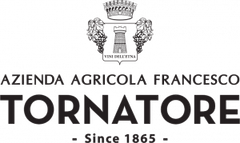
Out of a Sicilian family heritage that traces back to the 17th century, the Tornatore’s Mount Etna wine ventures began in 1865. Today the family’s operations are headed by Giuseppe Tornatore, a businessman whose expertise led to the acquisition of some of the region’s finest north-facing vineyards in the early 2000’s. That heritage and the Tornatore’s profound respect and understanding of the land is showcased in wines that capture the essence of Etna, deftly balancing concentrated flavors, complexity, freshness and refinement.
The company lies in the northern side of Mount Etna, the highest active volcano in Europe. The soils have volcanic origin and were created through the disintegration of lava, ash and stones from previous volcanic eruptions. The climate on the northern side of the Etna is characterized by mild temperatures, and more rain fall reflecting the influence of the Volcano. The combination of soil, climate and the skill of the winemakers, have made the northern slope of Etna an ideal area for the production of high-quality wines. “Our vineyards and our winery are only a few kilometers from our family home. Our entire family is rooted there. We have the greatest respect for this region, and we believe we have a responsibility to be stewards of Etna and to reflect its distinct character in our wines.” - Giuseppe Tornatore
Press Reviews
Wine Enthusiast
93 points - Editor's Choice (2017)
Aromas of red berry, rose, thyme and a whiff of camphor shape the fragrant nose. Sleek and graceful, the lithe, savory palate delivers juicy strawberry, crushed raspberry, Mediterranean herbs and white pepper framed in glossy tannins and fresh acidity. A mineral note evoking smoky flint lingers on the finish.
James Suckling
92 points (2017)
Lots of red plums here with glazed cherries and lemons. Medium body, fine and silky tannins and a refined finish. Drink now.
Vinous
91 points (2017)
Luminous red. Pretty floral and mineral notes complement pure sour red cherry, flinty herbs and spicy blueberry aromas and flavors. Bright and juicy, with a light to medium-weight frame, with a clean, crisp presence on the long fresh finish. A lovely red that goes down like water.
- Red Wine
- Pinot Noir
- Sustainable
- Dry
- Medium Bodied
- 750ml
- 13% alc./vol
About the Winery
Groupe Bellene
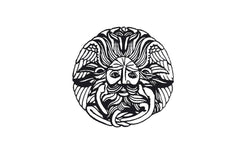
Led by Nicolas Potel in Beaune, Groupe Bellene is composed of the négociant arm Maison Roche de Bellene, the winery arm Domaine de Bellene, and a special back-vintage series under the Collection Bellenum label.
- Maison Roche de Bellene offers a complete range of wines, with an emphasis on individual terroirs from old vines of more than 40 years. All of the growers that Nicolas works with are either organic certified or sustainably farmed.
- Domaine de Bellene represents the wines that are produced and bottled from Nicolas Potel's private vineyard holdings.
- Collection Bellenum is a back vintage series that Nicolas Potel sourced from his friends in the region, offering a magnificent selection of bottled history. The wines have moved only twice in their lives, from the original cellar to Potel's and now to yours!
Nicolas Potel grew up at Volnay's Domaine Pousse d'Or, where his father worked. He trained abroad and returned home in 1996 to build a négociant business and started Maison Nicolas Potel, where he sourced grapes from good parcels, often working with the growers to improve the quality. By 2002, he was making 120 wines from 50 different appellations, and the rest is history!
Press Reviews
Wine Align
91 points - David Lawrason
This is an utterly charming, easy drinking and refined pinot. The hot 2018 vintage has layered in some ripeness with fine aromas of red cherry/raspberry compote, fine shrubby, foresty notes, and subtle oak spice. It is light to medium bodied, very smooth with fine tannin. The length is very good to excellent. Such poise and balance. Best now to 2023. Tasted June 2021.
90 points - Michael Godel
Nothing quite like a “normal” year to craft the most getable and crushable Bourgogne at the behest and passionate hands of Nicolas Potel. Old vines are in the 45 to 50 year range in highest of high density plantings harvested at a “normal” time in this post-modernist, climate adjusted period. That being the 5th to the 13th of September and fruit already ripe, burning the brix and phenol candle at both ends. Nose in to the promise of violets and roses, dive in for crunchy red fruit and some pretty solid tannins. That early yet necessary pick preserved acids with much to say in a pinot noir as tart and spirited as it is enriching of spirit. Despite the high drink-ability factor the structural parts creep up so wait a year for this to settle further. Drink 2022-2025. Tasted June 2021.
90 points - Sara d'Amato
Lovely, bright, crunchy and lively, this entry level Bourgogne from Roche de Bellene rarely disappoints. With a fine, elegant, and well-integrated oak treatment and an invitingly silky texture, this pinot noir is notably compelling and delivers solid value. Excellent length. Tasted June 2021.
- Red Wine
- Barbera
- Sustainable, Vegan-Friendly
- Dry
- Medium Bodied
- 750ml
- 14% alc./vol
About the Winery
Cascina Castlèt
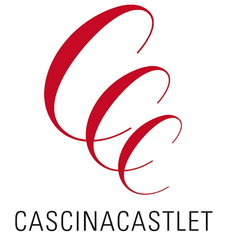 Cascina Castlèt has belonged to the Borio family for generations; Mariuccia, the current owner, inherited it from her father in 1970. Mariuccia focuses on her terroir and the local varieties. The vineyards of the estate are spread over 31 hectares, and are all located in Costigliole d'Asti.
Cascina Castlèt has belonged to the Borio family for generations; Mariuccia, the current owner, inherited it from her father in 1970. Mariuccia focuses on her terroir and the local varieties. The vineyards of the estate are spread over 31 hectares, and are all located in Costigliole d'Asti.
Press Reviews
James Suckling
91 points
Very nice blueberry and blackberry character with some spicy orange. Medium body. Fruity and tart. Drink now.
- White Wine
- Albarín
- Sustainable, Vegan-Friendly
- Dry
- Medium Bodied
- 750ml
- 13% alc./vol
About the Winery
Bodegas y Viñedos Pardevalles
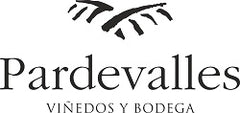 Pardevalles is recognized for being one of the driving forces behind the D.O Tierra de León, betting on the development of the indigenous grape varieties Prieto Picudo and Albarín Blanco. In 1949 Rafael Alonso founded Pardevalles continuing with the family tradition of growing grapes and making wine. The winemaking tradition in León goes back more than 400 years, famous for its centuries-old caves where wine was originally made.
Pardevalles is recognized for being one of the driving forces behind the D.O Tierra de León, betting on the development of the indigenous grape varieties Prieto Picudo and Albarín Blanco. In 1949 Rafael Alonso founded Pardevalles continuing with the family tradition of growing grapes and making wine. The winemaking tradition in León goes back more than 400 years, famous for its centuries-old caves where wine was originally made.The vineyards of Pardevalles are located between 750 and 820 metres above sea level, in an area with a Continental climate. They grow in poor, rocky alluvial soils which helps maintain the freshness in the wines. The philosophy of the Estate is grounded in making wines which express the character and identity of their origin, with a deep respect for the earth and the indigenous varieties of grape, combining tradition, innovation, and hard work.
Press Reviews
Decanter
92 points - World Wine Awards
Wine Align
90 points - Sara d'Amato
The early 2000s saw a revival in the albarín grape variety planted largely in the higher elevations of Castilla y León in southwestern Spain and a majority of that is being produced by Pardevalles. This refreshing and zesty expression offers an abundance of flavour from starfruit, lime, and yellow apple, to elderflower and toasty lees. Sure to be a hit with fans of sauvignon blanc and vermentino. An effortlessly elegant sipper with notable length. Tasted February 2024.
- Red Wine
- Gamay
- Biodynamic, Sustainable, Vegan-Friendly, Volcanic
- Dry
- Medium Bodied
- 750ml
- 13% alc./vol
About the Winery
Stéphane Aviron

Stéphane Aviron can be considered a pioneer in his approach to winemaking in Beaujolais, however he would just tell you that he’s simply returning to the traditional practices that have always made fantastic Gamay wines. Sustainable viticulture, extremely old vines and classic Burgundian techniques. He focuses on the Beaujolais village crus, all but forgotten gems of vineyards when the nouveau craze took over, which are the best sites for unique, expressive and terroir driven wines. All of the fruit is sourced from old vines (40+ years), so seeing Vieilles Vignes on the label is a rite of passage, not a privilege. Authenticity and a distinctly Beaujolais style of winemaking is what sets Stéphane apart from the rest.
Press Reviews
Wine Align
93 points - David Lawrason
Chenas is one of the smallest appellations of Beaujolais, situated astride more famous Fleurie. Both villages tend to make gamays with both richness and elegance. This sports a ripe nose of cherry/strawberry jam, peony and subtle pepper. It is medium bodied, smooth, firm and refined with gentle tannin. And the length is excellent. Very easy to enjoy now and should hold through 2028. Tasted June 2022
92 points - Megha Jandhyala
This is a fetching gamay with buoyant fruit notes of cherries and raspberries accompanied by aromas of candied violets, rosemary, and snapped twigs. The palate echoes these flavours with subtle notes of cured meat joining the chorus. Tannins are satin smooth and acids are tart. Length is excellent with a delightful fruity finale. Best 2022-2027. Tasted June 2022 by Critic Understudy Megha Jandhyala.
91 points - John Szabo, MS
This is a pleasantly twiggy-herbal-stemmy expression of Chenas with plenty of joyful fruit underpinning the ensemble. I like the fleshy dark cherry fruit on the palate, the silky-firm tannins, and the excellent length in the category. A superior cru; drink or hold late into the decade. Tasted June 2022.
91 points - Michael Godel
Chénas by Aviron is the cru that takes what the Villages offers and simply gives more. By home and vineyard the extrapolation and extension is natural, seamless and duly noted, from dancing fruit, happy palate and now, something viably more. Salumi and wet stone, a modicum of structure, violets in perfume and furthered texture. A positive thickening that stays with the palate, lingers and gracefully moves on. This is gamay to pour for people ready to get it and get at it. Drink 2022-2026. Tasted June 2022.
90 points - Sara d'Amato
An intriguing mix of ripe and jammy along with stemmy and herbal from the warm 2020 vintage. Juicy on the palate with flavours of cherry, bramble, wet leaf and a hint of carbonic. Mouthfilling and fleshy overall with plush red fruit on the finish of very good length. Tasted June 2022.
- White Wine
- Chardonnay
- Sustainable, Vegan-Friendly
- Dry
- Medium Bodied
- 750ml
- 12.5% alc./vol
About the Winery
Domaine de Mauperthuis

A family estate created by Marie-Noëlle & Laurent Ternynck, Domaine de Mauperthuis is located in Prehy, near the town of Chablis. Their wines express the terroir of this amazing region and the vineyards are currently undergoing the transition to organic. Domaine de Mauperthuis covers around twenty hectares of vineyards around Chablis. The estate, in the Burgundy appellation, is planted in Chardonnay, Pinot Noir, Sauvignon and César, on land facing south, benefiting from exceptional sunshine.
Press Reviews
Wine Align
91 points - David Lawrason
This is a quite rich, slightly oxidative style of unoaked chardonnay with pale golden colour and a ripe nose of baked apple. Peach pie, toasty lees and vague nuttiness. It is medium weight, smooth and almost creamy with fine acidity and mineral underpinning. The length is excellent. Tasted June 2022
- Red Wine
- Merlot
- Natural, Sustainable, Vegan-Friendly
- Dry
- Medium Bodied
- 750ml
About the Winery
Grains d'Estuaire
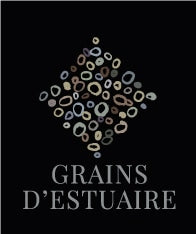
Julien Bonneau, (Château Haut Grelot in the Blayais), and his friend Alexandre Lavigne, restaurateur in Saint-Palais-sur-Mer, created in 2014 a range of wines, Grains d'Estuaire, from 'a 10 ha vineyard located in Saint-Bonnet-sur-Gironde, in the south of Charente-Maritime.
- Rosé Wine
- Prieto Picudo
- Sustainable, Vegan-Friendly
- Dry
- Medium Bodied
- 750ml
- 13.5% alc./vol
About the Winery
Bodegas y Viñedos Pardevalles
 Pardevalles is recognized for being one of the driving forces behind the D.O Tierra de León, betting on the development of the indigenous grape varieties Prieto Picudo and Albarín Blanco. In 1949 Rafael Alonso founded Pardevalles continuing with the family tradition of growing grapes and making wine. The winemaking tradition in León goes back more than 400 years, famous for its centuries-old caves where wine was originally made.
Pardevalles is recognized for being one of the driving forces behind the D.O Tierra de León, betting on the development of the indigenous grape varieties Prieto Picudo and Albarín Blanco. In 1949 Rafael Alonso founded Pardevalles continuing with the family tradition of growing grapes and making wine. The winemaking tradition in León goes back more than 400 years, famous for its centuries-old caves where wine was originally made.The vineyards of Pardevalles are located between 750 and 820 metres above sea level, in an area with a Continental climate. They grow in poor, rocky alluvial soils which helps maintain the freshness in the wines. The philosophy of the Estate is grounded in making wines which express the character and identity of their origin, with a deep respect for the earth and the indigenous varieties of grape, combining tradition, innovation, and hard work.
Press Reviews
WineAlign
90 points - Sara d'Amato
Pours a luminous, deep pink, this rosada from Leon is made entirely of the indigenous prieto picudo grape, more typically a blending variety with dark skins and often resulting in wines with licorice-tinged black and red fruit. With youthful exuberance and potency, this salty and succulent expression features a wealth of lightly candied red berries, slippery tannins and a touch of welcome bitterness that contributes balance and a sensation of freshness. Best to enjoy in its youthful condition but it has the concentration for another year or two of aging. Tasted February 2024.
- Red Wine
- Graciano, Grenache, Tempranillo
- Sustainable
- Dry
- Medium Bodied
- 750ml
- 14.5% alc./vol
About the Winery
Bodegas Exopto
Exopto is Latin for “to long for” or “to desire greatly” and it is the dream of Frenchman Tom Puyaubert and his family to endeavor to craft and assemble wines where the whole adds up to more than the sum of their parts. Tom relocated from France to Rioja in 2000 after falling in love with the region and working for the French cooperage Saury as its Spain representative.
When Tom began Exopto, he wanted to do a project that produced wines within this historical context of Rioja - combining both worlds in a unique way. His idea is to remain true to the blending of the principle grape varieties and to do so from the best terroirs/villages for those varieties crossing sub-regions of Rioja. Each wine though, has a majority of a different principle grape – showcasing that variety specifically within the context of a blend. The viticulture and winemaking model is that of the “vigneron” days – small plots of vines in the extremes, wild yeast fermentation in concrete or old oak vats and then aging in a way to showcase the fruit, minerality and terroir not the wood or aged flavours that people often associate with Rioja.
Press Reviews
Robert Parker
92 points
The very young red 2021 Bozeto de Exopto mixes Tempranillo from Ábalos and Mediterranean Garnacha from Alfaro (with 10% Graciano), and it seems very balanced, with good ripeness (14.5%), showing the Garnacha and the more austere Graciano with nice fruit and freshness. It's serious and has complexity and depth beyond its price point. It matured in a combination of concrete and oak containers for some six months. Excellent value in one of the finest vintages for this wine. 70,000 bottles produced. It was bottled in April 2022.
Wine Align
91 points - John Szabo
A blend of garnacha, tempranillo and graciano grown at around 500m in the Sierra de Cantabria, this is aged exclusively in concrete and thus a long way from what many would consider the 'traditional' style of Rioja. I like the freshness and vibrancy allied at the same time to ripe, plush fruit spanning both the red and black spectrum. Tannins are supple and acids balanced and creamy, leading into a long, gently saline finish. Concentration and depth, as well as complexity overall, far exceed expectations in the category. Well made wine from an evidently superior vineyard, delicious now, or hold 3-4 years. Tasted January 2024.
91 points - Megha Jandhyala
This is a charming Rioja, a blend of garnacha, tempranillo, and a small amount of graciano. I like the bright, supple red fruit here and the pretty floral and savoury herbal notes. The palate is lively and supple, with fine-grained tannins and juicy acids. Fresh, streamlined, and with a sense of lightness that is appealing, this wine is ready to drink, though it can also be cellared for a couple of years. Tasted January 2024.
- White Wine
- Garnacha Blanca
- Natural, Sustainable, Vegan-Friendly
- Dry
- Medium Bodied
- 750ml
- 14.2% alc./vol
About the Winery
Bodegas Puiggròs
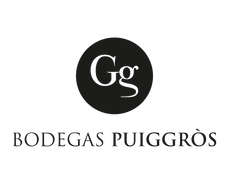
Since 1843, the Puiggros family has been producing wines from their own vines in the Odena region of Catalunya for the family and close friends. Over generations they had come to realize that their vineyards and techniques were something worth sharing with the world. A sincere dedication to the terroir in their zone and the indigenous varieties that grow there, allows them to constantly discover ways to unlock all of the magic that lies within their land.
Starting with conscious and clean farming in the vineyard, they hand-harvest only the best fruit for their production, and ferment each vineyard separately in varying vessels to accentuate what the vines have to show; some in stainless steel, and many in clay amphora of differing sizes. All the while seeing very little sulfur use (if any) until bottling. Puiggros is pushing the quality of northeastern Spain's wines forward, and doing so in a clean and unique way.
Press Reviews
Wine Align
92 points - John Szabo
A very pretty, floral, clean and fresh example of white grenache, indeed much fresher and brighter than many in the amphora-aged genre, a future classic. I love the gentle white and yellow-fleshed fruit, the green apple freshness, the lemon blossom and meadow flowers. Acids are bright and crunchy, and 14.2% alcohol comes across as more like 12.5. The finish lingers terrifically on sapid, saline freshness. A sheer joy to drink; best now-2024. Tasted January 2021.
92 points - Michael Godel
A warm and generous white grenache with alcohol reflecting ripeness ans style, from a family growing grapes forDrink 177 years but only producing commercially for the past dozen. In this case their local Catalonian garnatxa blanca is raised at heights (600m) on limestone and clay, then sent t0 800L sized clay amphora. Comes away clean, spirited, juicy and pure as white garnatxa driven snow. Just pink enough to vin gris it up while in delivery of the natural and curated amphora experience. Just bloody delicious. Drink 2021-2025. Tasted January 2021.
- White Wine
- Chardonnay
- Sustainable, Vegan-Friendly
- Dry
- Residual Sugar: 2 g/l
- Medium Bodied
- 750ml
- 13.00% alc./vol
About the Winery
Domaine Baud Père et Fils

The history of Domaine Baud dates back to 1742, and it wasn't until 1950 when René Baud, the 7th generation, rebuilt the vineyard which had suffered from the phylloxera crisis and two World Wars.
Starting with only 4 hectares, the vineyard progressively expanded to 20 hectares with the help of successive generations. Now, managed by siblings Clémentine and Bastien, the 9th generation, the estate continues to flourish and grow, with a strong commitment to sustainable viticulture and preserving the traditions and style that makes the wines of the Jura so unique and incredible.
The estate achieved the Terra Vitis certification in 2014 for its eco-friendly work and environmental preservation.
Press Reviews
Wine Anorak
94 points - Jamie Goode
Powerful, lively and spicy with concentrated tangy citrus and pear fruit with some saline notes and tangy apple and lemon on the finish. Lovely intensity here with some crystalline citrus fruit.
Wine Align
93 points - David Lawrason
This is not your everyday chardonnay! In the Jura region of east-central France in the lower foothills of the Alps, there is tradition of oxidative winemaking, some under a layer of flor, as occurs in some Spanish sherry. As a result of the advance maturation this pours medium gold. The nose is dominated by classic hazelnut, honey, barley sugar sourdough and anise, around the ripe tropical fruit. It is medium weight, very smooth, well balanced and focused, with excellent length. More lithe lemon notes enliven the finish. There is a touch of tannin. Tasted December 2022.
91 points - John Szabo, MS
A pure chardonnay made in the traditional, oxidative Jura style under flor, not unlike fino sherry, but here the oxidation is more pronounced. Expect bruised apple and cold Orange Pekoe tea, cold wheat toast with honey, lemon pith and zest, and much more in an unusual but complex expression. The palate is mid-weight, showing more fruit and less oxidative qualities than the nose, succulent acids, and good to very good length. I must say, I like the salinity and savoury aspects, the lingering flavours and authentic but unimpeachable winemaking. There's fantasy here; be sure to decant before serving; best now-2026. Tasted December 2022.
91 points - Michael Godel
Clémentine Baud took over the family estate with her brother six years ago. The first father to daughter transition and with many to follow. The estate dates back to 1742, started by Jean-François. They farm 25 hectares, Clémentine’s father started with five and grew to 19 hectares when he retired. Picking for Sparkling now seems to happen in August, save for the difficult 2021 vintage. In 2017 70 per cent of the harvest was lost to the frosts, 50 in 2019 and 80 in 2021. "We have over 40 old varieties in the Jura, important for diversity, including those not allowed under the rules of the AOC," tells Clém. The fruit for Cuvée Flor is grown at a latitude of 46.73 North and though very much a cool climate place for chardonnay the threats of warmer winters and seasonal frosts has wreaked havoc over the past 10 years. A chardonnay of remarkable lustre, concentration and purity, worked by way of oxidative aging, low alcohol expectation starting at 12 and finishing no higher than 14 to 14.5. A floral chardonnay, not one related to yeast and surely a pretty in Jura wine. From the younger vines, phenolic and hinting towards though remaining clear of emerging boozy. Filled with flavour, hazelnut and praline, peach and yellow plum. A world of its own. Drink 2022-2025. Tasted July 2022.
- Red Wine
- Listán Negro
- Sustainable, Vegan-Friendly, Volcanic
- Dry
- Medium Bodied
- 750ml
- 13.5% alc./vol
About the Winery
Viñátigo

Juan Jesús is a proud native of Tenerife and the fourth generation of growers. During the thirty years that he's overseen Bodegas Viñátigo, he has considerably increased its holdings, planting varieties that he and his team recuperated from near extinction.
Driven by passion and love for his homeland, Juan decided to revive and work to save the native grape varieties that were brought to the Canary Islands by the conquers back in the 15th century and that had survived on the islands for centuries. He is a hero of contemporary Canarian viticulture. The wealth of knowledge that his work has created has helped underpin the significant expansion of wine styles that are now available throughout the archipelago, and his wines have achieved a calibre of class that many doubted the Canaries would ever produce again. (The Epic Wines of the Canary Islands, written by Santo Bains).
Press Reviews
Wine Align
91 points - David Lawrason
From pre-phylloxera vines grown at high altitude in volcanic soils, this is a mid-weight, quite smooth red with a generous nose that reminded me of smoke and tar, with wild chokecherry, pomegranate fruit and herbs. Flavours are a bit unusual and sour-edged yet the texture and tension are smooth and appealing. Tannins are quite mild; the length is excellent. Tasted December 2020.
91 points - Michael Godel
The volcanic midlands of Tenerife’s northwest section is THE place on the Canary Islands for growing and producing the highest quality of listán negro. The fourth and fifth generations of Juan Jesús’ family are the custodians of these pre-phylloxera vines at 500-1000m and the wines they gift. Just a kiss of oak does little to adulterate the precocious sentimentality and unknowable delight for a wine that you warm up to without knowing how or why. By now and with the 2019 vintage this unique red has come into its own at a perfect knife’s edge volatility and discreet if sumptuous behaviour. A must try and twice, each year for the next three to six. Drink 2020-2025. Tasted December 2020.
- País
- Sustainable
- Dry
- Medium Bodied
- 750ml
- 13% alc./vol
About the Winery
Garage Wine Co.

Garage Wine was literally started in a garage in 2001, by Etobicoke expat Derek Mossman and his wife Pilar Miranda. Since then, the dynamic duo handcraft wines from a series of individual vineyards located in the Maule and Itata Valleys, in the south of Santiago, Chile.
Garage Wine Co makes wines from a series of individual parcels, small lots / bottlings of 8-22 barrels that include a series of dry-farmed field-blends of Carignan, Garnacha, Monastrell, País, Cinsault and Cab Franc grown on pre-phylloxera rootstock with small farmers in the Maule and Itata. Each wine is from a 1-2 hectare parcel in a different place.
Over the years working in the community they have raised a veritable posse of vineyard hands whose skills are working the vineyards the old way / the traditional way– originario. The vineyards are on the old coastal range of mountains closer to the Pacific and have granitic soils with cracks for roots to get deep down into.
When GWCo. speaks of the provenance of these wines they mean more than just the geological terroir. Derek and Pilar think the farming practices that have evolved over generations have as much to do with the wines’ personalities as the soils. All the wines are made by hand with native yeasts in small tanks, punched down manually and pressed out in a small basket press. GWCo is still very much a DIY operation and we still tow much of the crop back to the winery in trailers behind trusty pickup trucks 2,000 kilos at a time.
Press Reviews
WineAlign
91 points - Michael Godel
The 2018 país was, and I quote Garage Wine Company founder (and Oakvillean) Derek Mossman Knapp ”A wine that rose from the 2017 bush fires, quickly having ascended out of the ashes as something resurrected and reinvented.” The method is pressing whole clusters with stems and a co-fermented (2018) collection of país, stacked with carinena, one on top of the other. Now in 2021 it’s all about the mission grape, survivor and revivalist, the stacks of fruit like lyrics, on repeat. If you say the mantra often enough it becomes bible and this grape made in this way is the lifeblood and soul of Chile’s Secano Interior Cauquenes. A very instrumental red wine, comfortable, of relaxed warmth and lack of pressure that you would only expect at home, with people you love. “People can you feel it? Love is everywhere.” Drink 2023-2026. Tasted February 2023.
90 points - Megha Jandhyala
Born during the pandemic, the Garage Wine Company’s old-vine project is devoted to reviving previously-neglected old vines and supporting local farming communities. Founded by Mossman Knapp and Pilar Miranda, it is based in Maule, home to many dry-farmed, family-owned, old vineyards. Only about 5000 bottles of this old-vine país were made using traditional methods, including traditional dry-farming and hand-harvesting in the vineyards, and manual punchdowns and native yeast in the winery. It is a fresh, light, cheerfully fruity, wine, clean and uncluttered, with a down-to-earth, guileless charm. Red berries and herbs are joined by notes of pepper and wildflowers. The palate is medium-bodied and soft, with fine tannins, tart acids, and very good length.
- Red Wine
- Pinot Noir, Trousseau
- Sustainable, Vegan-Friendly
- Dry
- Residual Sugar: 2 g/l
- Medium Bodied
- 750ml
- 13.00% alc./vol
About the Winery
Domaine Baud Père et Fils

The history of Domaine Baud dates back to 1742, and it wasn't until 1950 when René Baud, the 7th generation, rebuilt the vineyard which had suffered from the phylloxera crisis and two World Wars.
Starting with only 4 hectares, the vineyard progressively expanded to 20 hectares with the help of successive generations. Now, managed by siblings Clémentine and Bastien, the 9th generation, the estate continues to flourish and grow, with a strong commitment to sustainable viticulture and preserving the traditions and style that makes the wines of the Jura so unique and incredible.
The estate achieved the Terra Vitis certification in 2014 for its eco-friendly work and environmental preservation.





























